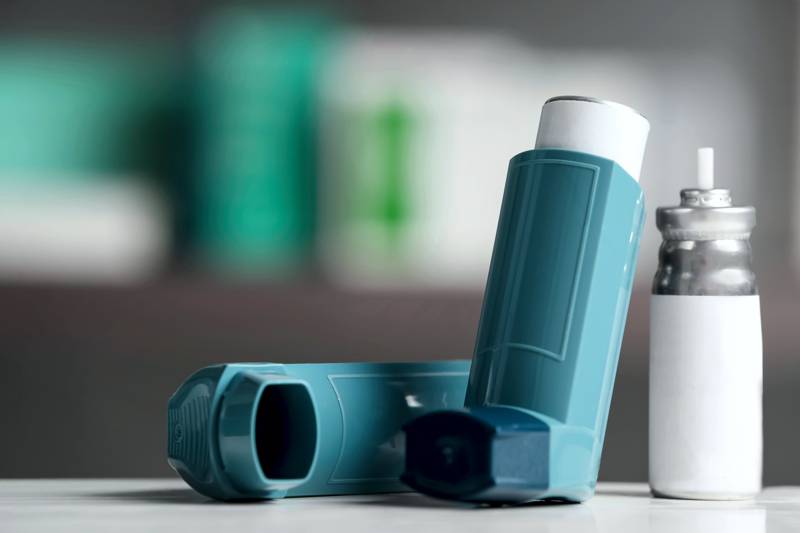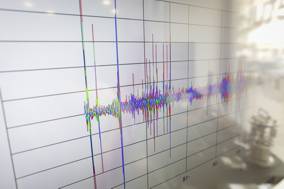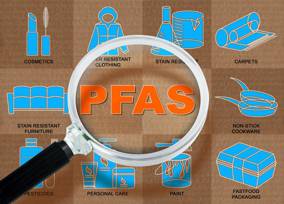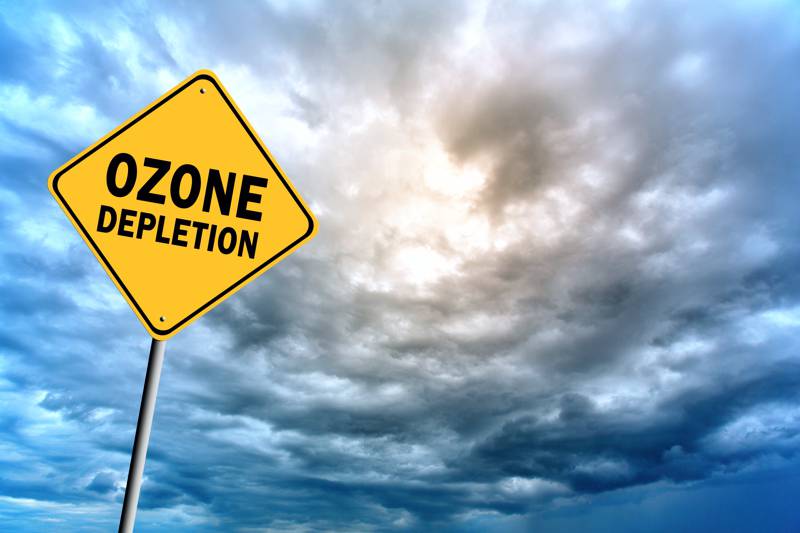 |
November 2023 |
|
Grazie mille!
As the end of the year approaches and Thanksgiving is almost here, Team McCoy would like to thank each and every one of you. Whether you’re a seminar attendee, a reader of our publications, or use McCoy’s website as a resource, your support means the world to us. Delivering detailed and clear RCRA and CAA training is what we love to do and together we’ve been able to accomplish great things! A million thanks for your business.
|
 |
|
New model streamlines RCRA permits
Hazardous waste permitting can be time-consuming, costly, and fraught with idiosyncratic complications—after all, no two facilities are the same. EPA’s new RCRA Model Permit is a guide to assist permit writers in drafting and reviewing RCRA permits. This resource includes a series of modules allowing permit writers to input facility-unique data into templates of stock regulatory language. Ideally, the result is a smoother, less complicated permitting process. The agency intends to update the model permit periodically to incorporate new rules, policies, and guidance to ensure accuracy for permit writers. READ MORE
|
 |
|
Clean Air Act befuddles
Wouldn’t understanding the complex puzzle called the Clean Air Act make compliance a whole lot easier? We think so… and you can get there in just three days. Imagine working effectively with your air consultants with clear and concise collaboration. It’s possible with our in-depth training, delivered by our experienced presenting team, your imagination can become reality. Sign up for McCoy’s January 16-18, 2024, .VIRTUAL CAA seminar or take a look at our full schedule.
McCoy CAA agenda
|
|
Getting PFAS out of water
In the world of PFAS, most of the days can be well... a bit dark and gloomy. So, when some sunlight comes around every once in a while, it's best to make the most of it. And colloidal activated carbon (CAC), a mixture that captures PFAS while still in the ground could be the newest ray of sunshine.
Remediating PFAS in groundwater
|
|
 |
 |
|
Bye bye exemptions, hello Subpart Kc
Thousands of facilities throughout the United States operate tanks storing volatile organic liquids. These tanks often need to comply with various CAA standards, one of the most common being Subpart Kb under the NSPS program. EPA has reviewed Subpart Kb, a standard nearly four decades old, and believes it is time for an overhaul. As such, the agency is proposing a new Subpart Kc to reflect the best system of emissions reductions for volatile organic liquid storage vessels. With broader applicability and more stringent operating standards, Subpart Kc looks to be a big leap forward in controlling VOC emissions compared to its predecessor. READ MORE
|
 |
|
Last chance for Vegas!
You haven’t missed your chance to attend McCoy’s Las Vegas RCRA seminar this December 4-8, 2023—YET! The Orleans Resort may be booked over the week of our training, but you can still register for the in-person experience. Check out VisitLasVegas.com for things to do before or after the seminar. Reserve yourself a seat in class before it fills up!
Sign up for Las Vegas!
Class agenda
|
 |
|
HFC proposal phasedown, exemption
When the United States ratified the Kigali Amendment to the Montreal Protocol, it committed to reducing hydrofluorocarbon (HFC) use. Used for metered dose inhalers, refrigeration, and semiconductor etching, HFCs are potent greenhouse gases that can have as much as 10,000 times the global warming potential as carbon dioxide. To create an emissions reduction and reclamation program for certain HFCs, EPA proposed an HFC phasedown rule on October 19, 2023. [88 FR 72216] Under a new Part 84, Subpart C, the rule would establish a leak detection and repair program, set reclamation standards, and mandate technician training. The rule would also create RCRA alternative recycling criteria for ignitable used refrigerants under a new Part 266, Subpart Q. Subpart Q would exempt “lower flammability spent refrigerants” from Parts 260 through 270 when recycled for reuse. More information on the proposal is available, and comments may be submitted through December 18, 2023 via Docket ID No. EPA-HQ-OAR-2022-0606.
|
 |
|
An unusual water bearer
Most people don’t understand their “work product” but believe it or not, beavers are astounding critters that keep our ecosystem healthy. Check out five ways beavers keep our ecosystems healthy and next year's Halloween costume might be an easy decision!
|
|
Climate change impacts RCRA corrective action
On October 18, 2023, EPA issued a draft memorandum on incorporating climate change adaptations into the RCRA corrective action process. The draft provides the agency’s recommendations on how EPA regions and authorized states should work with RCRA-permitted facilities to achieve this goal. The applicable stages of corrective action are discussed to highlight where the climate change considerations can be applied to this process. READ MORE
|
 |
|
Catch earthquakes earlier
Detecting earthquakes before they happen is no easy game. Earthquake early warning systems (EEW), use equipment and algorithms to detect seismic waves. But scientists have struggled placing them near heavily populated coastlines, even though these areas are some of the most active seismic places. That’s why 50 kilometers of a submarine telecom cable running between the United States and Chile is being tested to create an array that may shave seconds off of EEW alerts. Find out more...
|
|
TSCA’s new PFAS reporting regs
An ever-growing part of the public consciousness, per- and polyfluoroalkyl substances (PFAS) are well known for their environmental persistence, bioaccumulation, and potential carcinogenicity. One way to prevent PFAS contamination is to control their manufacture from the start, as mentioned in EPA’s 2021 PFAS roadmap. The agency has recently finalized a new set of TSCA reporting and recordkeeping requirements to better characterize the sources and quantities of PFAS manufactured in the United States. This rule affects facilities that have manufactured or imported PFAS since January 1, 2011, and took effect November 13, 2023. READ MORE
|
|
 |
 |
|
Monitoring ODS process agents
Designed to meet the United States’ commitments to the Montreal Protocol, Title VI of the CAA created the basis of the stratospheric ozone protection program. Amongst other requirements, the implementing regulations in 40 CFR Part 82 set chlorofluorocarbon and hydrochlorofluorocarbon production and consumption controls, recycling and equipment servicing procedures, and various administrative provisions. On October 19, 2023, EPA proposed additional recordkeeping and reporting requirements for ozone-depleting substances (ODSs) used as process agents. [88 FR 72027] Process agents are those ODSs aiding or inhibiting chemical reactions but are not themselves consumed in the reaction. The rule would benefit both EPA and industry by improving the understanding of ODS process agent uses, monitoring use changes over time, and providing clarity on treatment and reporting. Comments may be submitted through December 4, 2023 via Docket ID No. EPA-HQ-OAR-2022-0707.
|
 |
|
Set your sights on February!
McCoy’s 2024 lineup will be here before you know it! If you’re looking for a comprehensive breakdown of RCRA, at a comfortable pace, look no further than McCoy’s 5-Day seminar, February 5-9, 2024.
Or if you’re already a RCRA pro and want to sharpen your skills, take McCoy’s 2-Day RCRA Refresher. Your registration includes the RCRA Unraveled and Reference publications. Register online or over the phone at 303-526-2674 and be sure to provide a valid shipping address!
Register for our 5-Day February .VIRTUAL RCRA 5-Day
Register for our 2-Day .VIRTUAL RCRA Refresher
|
|
2023–2024 Seminars
3-Day CAA Seminars
.VIRTUAL: January 16–18, 2024
.VIRTUAL: April 9–11, 2024
.VIRTUAL: August 6–8, 2024
.VIRTUAL: October 22–24, 2024
5-Day RCRA Seminars
Las Vegas: December 4–8, 2023
.VIRTUAL: February 5–9, 2024
Virginia Beach: March 11–15, 2024
.VIRTUAL: May 6–10, 2024
Denver: June 24–28, 2024
.VIRTUAL: July 22–26, 2024
Lake Tahoe: August 19–23, 2024
.VIRTUAL: September 16–20, 2024
.VIRTUAL: November 4–8, 2024
2-Day RCRA Refreshers
.VIRTUAL: February 21–22, 2024
.VIRTUAL: June 11–12, 2024
Houston: November 20–21, 2024
Visit understandrcra.com to register or call us at 303-526-2674.
|
|
If you have received this email in error or wish to remove your name from our subscriber list, you may unsubscribe here. You may also update your profile here. If you need to contact us directly about subscription or other issues, you may email us at mccoyreview@mccoyseminars.com or call us at 303-526-2674.
Copyright ©2023 McCoy and Associates, Inc.
12596 West Bayaud Avenue, Suite 210
Lakewood, CO 80228
McCoy and Associates, Inc. makes no representation, warranty, or guarantee in connection with any guidance provided in RCRA Review. McCoy and Associates, Inc. expressly disclaims any liability or responsibility for loss or damage resulting from its use or for the violation of any federal, state, or municipal law or regulation with which such guidance may conflict. Any guidance in RCRA Review is general in nature related to the federal RCRA regulations. Persons evaluating specific circumstances dealing with RCRA regulations should review state and local laws and regulations, which may be more stringent than federal requirements. In addition, the assistance of a qualified professional should be enlisted to address any site-specific circumstances.
|
|